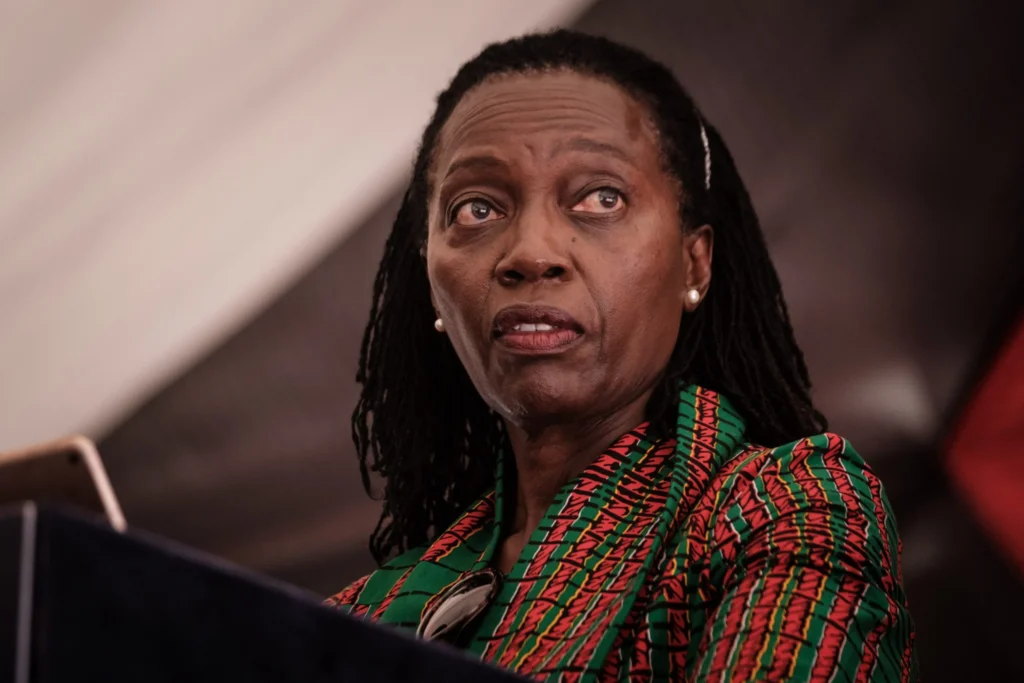Former Kenyan Justice Minister Martha Karua has been deported from Tanzania, sparking diplomatic tensions and raising concerns about political repression in the East African region.
Karua, a prominent human rights advocate, claimed she was forced to leave Tanzania alongside two colleagues—lawyer Gloria Kimani and activist Lynn Ngugi—after arriving to attend the court hearing of Tanzanian opposition leader Tundu Lissu, who is facing treason charges.
The People’s Liberation Party (PLP), which Karua founded earlier this year, said the trio endured hours of unwarranted interrogation before being deported. They had traveled to Tanzania in solidarity with Lissu, leader of the opposition Chadema party, who was arrested in April for holding a rally under the slogan “No Reforms, No Election.”
Kenya’s top foreign affairs official, Korir Sing’oei, has urged Tanzanian authorities to release former Chief Justice Willy Mutunga and his team, who were also detained at the airport after arriving for the same purpose. Other prominent figures in the delegation include lawyer Hussein Khalid and youth activist Hanifa Adan. Adan described their detention at Julius Nyerere International Airport as “ridiculous and petty.”
Human rights organizations, including the Tanzania Human Rights Defenders Coalition, condemned what they labeled as arbitrary arrests, pointing out that Karua had previously been allowed to observe court proceedings when Lissu appeared in April.
Tanzanian activist Boniface Mwangi also reported being harassed by men claiming to be police officers who attempted to enter his hotel room late Sunday night.
Chadema’s Secretary General John Mnyika criticized the government’s actions, arguing that the arrest and deportation of foreign observers were attempts to distract from the political nature of the treason case against Lissu.
Lissu, who survived an assassination attempt in 2017 after being shot 16 times, remains in custody as treason charges in Tanzania do not allow for bail. If convicted, he could face the death penalty. His party, Chadema, has since been barred from participating in the upcoming October elections after refusing to sign a controversial electoral code of conduct that critics argue is designed to stifle opposition.
Tanzania’s ruling CCM party, in power since 1977, is widely expected to retain control. President Samia Suluhu Hassan, initially praised for opening up political space following the death of her predecessor John Magufuli, now faces accusations of returning to authoritarian tactics. The government has denied all allegations of repression.
Karua, who served as Kenya’s Justice Minister from 2005 to 2009 and was Raila Odinga’s running mate in the 2022 presidential elections, is also known for representing Ugandan opposition leader Kizza Besigye. He was abducted in Kenya last year and forcibly returned to Uganda to face treason charges—allegations he, like Lissu, maintains are politically motivated.

